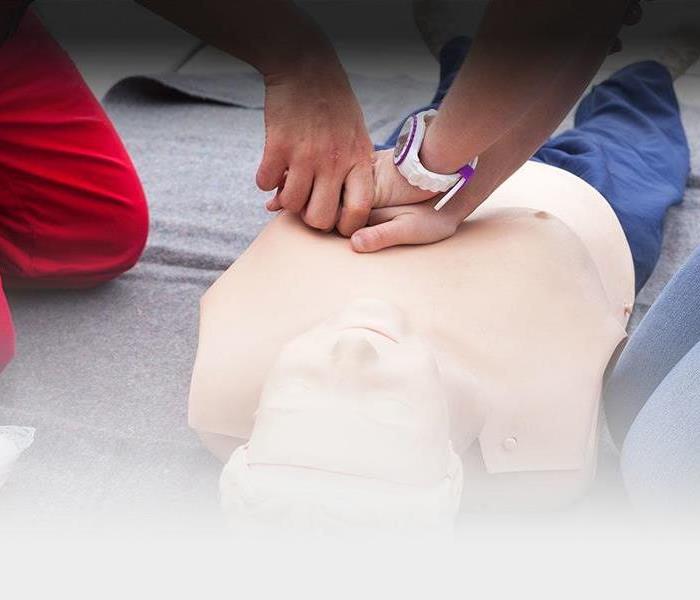National Preparedness Month: Safety Skills
9/10/2018 (Permalink)
Learn First Aid & CPR
Take a first aid and CPR class. Local American Red Cross chapters can provide information about this type of training. Official certification by the American Red Cross provides, under the “good Samaritan” law, protection for those giving first aid.
Get more information about the supplies in a first aid kit.
Learn to Use a Fire Extinguisher
Make sure you have one or more up-to-date fire extinguisher and be sure everyone knows where they are kept and how to use them. You should have, at a minimum, an ABC type.
The U.S. Fire Administration recommends that only those trained in the proper use and maintenance of fire extinguishers consider using them when appropriate. Contact your local fire department for information on training in your area. Get more information about preparedness for a fire emergency.
Know how to shut-off Utilities
Natural Gas
Natural gas leaks and explosions are responsible for a significant number of fires following disasters. It is vital that all household members know how to shut off natural gas.
Because there are different gas shut-off procedures for different gas meter configurations, it is important to contact your local gas company for any guidance on preparations and response regarding gas appliances and gas service to your home.
When you learn the proper shut-off procedure for your meter, share the information with everyone in your household. Be sure not to actually turn off the gas when practicing the proper gas shut-off procedures.
If you smell gas or hear a blowing or hissing noise, open a window and get everyone out quickly. Turn off the gas, using the outside main valve, if you can, and call the gas company from a neighbor’s home.
Caution: If you turn off the gas for any reason, a qualified professional must turn it back on. NEVER attempt to turn the gas back on yourself.
Water
Water quickly becomes a precious resource following many disasters. It is vital that all household members learn how to shut off the water at the main house valve.
Before an emergency happens, locate the shut-off valve for the water line that enters your house and label this valve with a tag for easy identification. Make sure all household members know where it is located.
Make sure this valve can be completely shut off. Your valve may be rusted open or it may only partially close. If so, replace it.
Cracked lines may pollute the water supply to your house. It is wise to shut off your water until you hear from authorities that it is safe for drinking.
The effects of gravity may drain the water in your hot water heater and toilet tanks unless you trap it in your house by shutting off the main house valve. (This is not the street valve in the cement box at the curb – the street valve is extremely difficult to turn and requires a special tool.)
Electricity
Electrical sparks have the potential of igniting natural gas if it is leaking. It is wise to teach all responsible household members where and how to shut off the electricity.
Locate you electrical circuit box. For your safety, always shut off all the individual circuits before shutting off the main circuit.
Source: Ready.gov






 24/7 Emergency Service
24/7 Emergency Service
